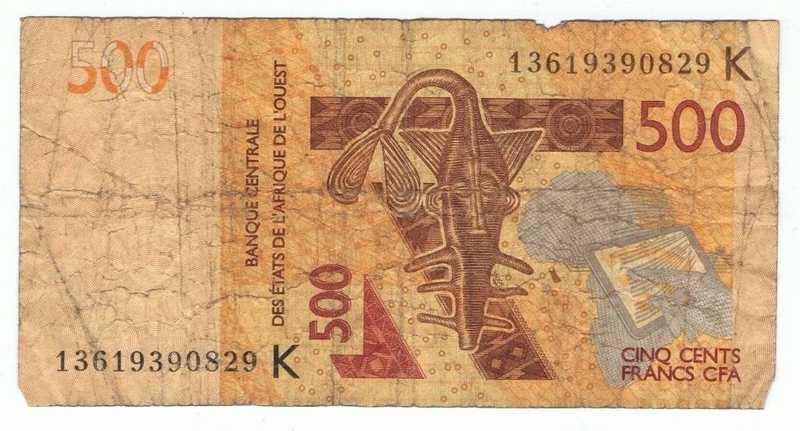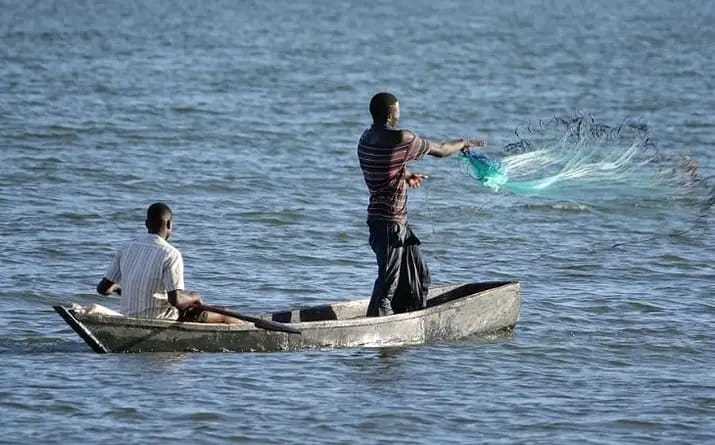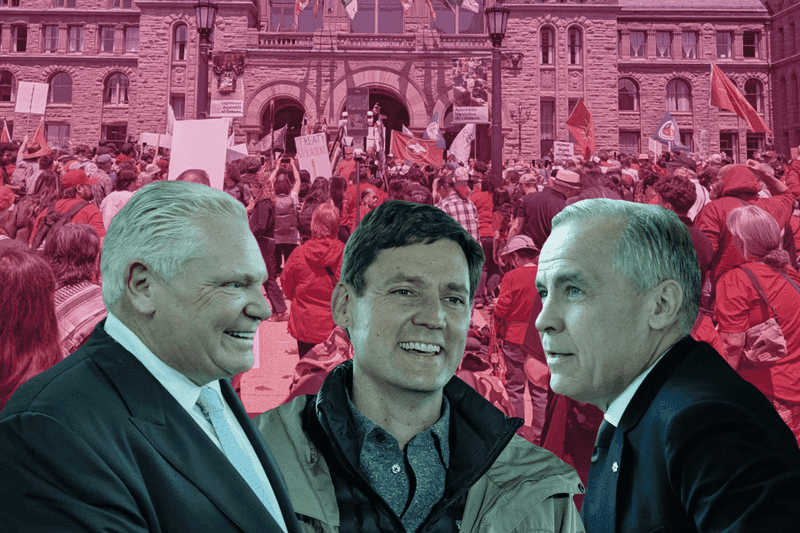
The following is an adaptation of the Introduction to Economic and Monetary Sovereignty in 21st Century Africa, edited by Maha Ben Gadha, Fadhel Kaboub, Kai Koddenbrock, Ines Mahmoud, and Ndongo Samba Sylla, and published by Pluto Press.
In the face of the largest global pandemic in at least a century, the bifurcations of the world between the Global South and the Global North have become more visible than ever. ‘Vaccine apartheid’ separates the world into Europe and North America on one side, and most of Latin America, Asia, and, particularly, Africa – with a fraction of the available vaccines – on the other. At the same time, the ability to dole out massive fiscal stimuli is a staple of the North, with the United States taking the lead. The Global South, by contrast, and the African continent in particular, has run into a deeper looming debt crisis, while high public health expenditures are needed to combat the virus. This is illustrated by South Africa which witnessed the highest decline in GDP growth, -6 per cent, in 2020, followed by the North Africa region at -3.4 per cent.
The meagre debt rescheduling initiatives pursued by the International Monetary Fund (IMF) and the G20 have been of little help. The need for Africa to increase its monetary and economic sovereignty in order to powerfully face the unequal international division of labour has rarely been more urgent, as being dependent on the ‘benevolence’ of foreign creditors, both public and private, is neither sustainable nor beneficial.
Money and finance are no neutral instruments, but an integral part of the reproduction of unequal capitalist social relations. The international monetary system and the global and domestic financial markets partake in the regulation of social struggles and the distribution of profit. Yet, how exactly money and finance work to constrain and empower has rarely been studied on the African continent. Samir Amin, Joseph Pouemi, and Dani Nabudere have been among the few authors taking monetary and financial affairs seriously as part of Pan-African analysis, and the unique and singularly colonial currency arrangement, the CFA Franc, has received some attention over the decades, but few attempts have been made to think about the question of monetary and financial sovereignty across the entire continent.
Three ongoing problems make the study of money and finance especially urgent. First, the problem of debt denominated in foreign currency: The looming debt crises and obvious differences in fiscal space between the North and the South have shown that debt crises are a structural problem of global capitalism since at least the debt crisis of the 1980s and the Asian financial crises. Second, the problem of capital flows: The North Atlantic financial crisis from 2007 to 2008 and the Eurozone crisis have shown that financial flows have multiplied and that no one is immune to the volatilities of global capital flows and the havoc they can wreak. Third, the problem of progressive policy: discussions about Modern Monetary Theory (MMT), which has animated policy debates on how best to make money and finance work for all and to use our resources to their full potential.
The Immediate Crisis: Covid-19
In April 2020, at the beginning of the Covid-19 pandemic, while the world was experiencing the greatest health and subsequent economic crisis, the G20 announced an initiative to suspend the repayment of bilateral loans owed by a number of countries (most of them in Africa). These countries faced revenue losses stemming from a sharp decline in economic activity. For many commodity exporter countries, there was a concurrent drop in commodity prices, trade, tourism revenues, and remittances that exacerbated their balance of payment crisis.
This was not a debt cancellation, however. The Debt Service Suspension Initiative (DSSI) only allowed 46 from 77 eligible countries to ask for a debt moratorium with their public, bilateral G20 creditors. The bulk of these countries’ debt is held by multilateral institutions and private holders. For example, the Republic of Congo, Ethiopia, Senegal, and Zambia owed more than 50 per cent of their debt to commercial creditors during the period May 2020 to December 2020. Moreover, a report by Eurodad found that DSSI-eligible countries were already scheduled to repay $115 billion of debt between 2022 and 2024, just at the time when their suspended 2020 payments are due.
In late 2020, the G20 extended this initiative to the 17 African governments who would have been eligible, but only three countries requested debt treatments: Ethiopia is seeking a flow rescheduling, while Chad and Zambia have requested debt restructurings. The US- or UK-based credit rating agencies have made these initiatives costly for countries willing to ask for assistance. As soon as Ethiopia announced its willingness to take the G20 up on its offer, it was downgraded by Fitch ratings to the default risk zone ‘CCC’ and placed by Moody’s under review for downgrade. Fitch’s head of Middle East and Africa sovereign ratings stated quite openly to Reuters that ‘it would be likely that any other countries applying under the G20 Common Framework would be considered along the same lines as Ethiopia’. The Eurobond contracts held by these countries already included a default clause that ‘non-payment of external debt, including seeking a moratorium, would be considered as defaulting’. In the process, not only Ethiopia was downgraded, but all countries that responded to the G20’s offer were punished for having attempted to use this poisoned gift.
Downgraded by credit rating agencies, they will have to pay higher interest rates on the same amount of existing debt, and access to capital markets will be more difficult. Additionally, during the programme, they will be not allowed to incur debt from any other creditors. Although they will benefit from a debt moratorium, the amount initially planned for debt service could only be used to address critical spending caused by the pandemic (such as spending on the prevention, containment, and management of pandemic) and not for their much needed economic recovery. Finally they will be forced to follow the usual austerity-based policy framework that was already imposed by the Bretton Woods institutions in charge of the implementation of the G20 programme.
Across the Global South and the small and weakened internationalist left in the North some raised their voice to cancel Third World debt, or to support the issuance and allocation of $3 trillion (US) special drawing rights (SDRs) by the IMF to permit countries in debt distress to tackle the health crisis, strengthen their health systems, and allow a long-term fiscal response for their economic recovery. Yet, in line with the prevailing constellations of forces, the Global North governments, the IMF, and the World Bank continue to promote the same conditions of fiscal tightening and further trade and capital account liberalisation.
Waiting for international financial institutions or the Global North to show more solidarity seemed to be a losing strategy. There is no way around Africa taking its structural position in the international division of labour into its own hands, and to increase its monetary and economic sovereignty. While monetarily sovereign countries like the US, China, Russia, Japan and, to a lesser extent, the EU had the tools, and the means to limit the disastrous effects of the pandemic on their economies by combining monetary measures to avert the worst of the panic in financial markets, fiscal stimulus, and regulatory frameworks to preserve their productive capacity, the African continent had little of these; they wanted to refrain from asking their ‘partners’ in the North for help, but did not have the clout to do so.
The Long-Standing Crisis: Africa and the Quest for Financing Development
Kwame Nkrumah’s dictum that political sovereignty has not meant economic sovereignty was true in the early 1960s, and is true today. There has been progress, but setbacks are frequent, and much remains to be fought for.
Most African countries gained political independence during the 1950s and early 1960s, with the Portuguese and Southern African colonies joining the fray later in the 1970s to 1990s. While the early decades were characterised by socio-economic reconstruction where many African countries successfully expanded their basic infrastructure, public expenditures, and social services, it did not succeed in delinking the continent from structural economic dependency on the European colonisers, or moving beyond existing capitalist relations of production and exploitation. Indeed, most of the infrastructure built by the colonisers was built for surplus extraction and capital accumulation. Thus, the second oil price shock, falling commodity prices, and a succession of events in the 1980s caused African economies, most of them exporters of unprocessed commodities and minerals, to incur external debts they could no longer afford to service. This outstanding debt crisis led to decades of growing multilateral debts and the famous Structural Adjustment Plans. The latter deepened intensive, extractive export-oriented development models. Moreover, by joining GATTS and EU Association agreements in the 1990s, African countries entered a vicious circle of opening borders to foreign investors that deepened their trade imbalances. Consequently, they are thus facing a continuous need for foreign currencies to service their accumulated foreign debt and to pay for imports of essential goods and energy, while continuing to export low value-added industrial products and raw materials.
Since the onset of the Global Financial Crisis in 2007, more than 15 African governments decided to sell US dollar denominated government bonds to Western banks for the first time since the debt crisis in the 1980s. Contrary to what the BRICS and particularly China did, which began to create alternative financial institutions and sought to internationalise the use of its currency, African countries further increased their dependency on Northern and Western capital markets, instead of decreasing it.
Excess liquidity caused by quantitative easing and the search for yield in a low-interest environment pushed Northern banks towards African governments. The latter were interested because the interest rates of these bonds seemed low at first sight, and were thus a self-determined and promising way to finance their infrastructure investments. The Bretton Woods institutions’ role in tightening fiscal space and pushing for conditions of financial and capital liberalisation were enabling conditions. Not being bound to the IMF, the World Bank, or other donors’ conditions, appeared like an opportunity for policy space and more autonomy. However, with rising interest rates since 2015, and the slump in some export commodity prices, numerous countries have begun to face a debt trap. For Ghana, Kenya, Angola, and South Africa, debt levels have increased threefold between 2005 and 2015. For Mozambique, the situation is worse; its debt/GDP ratio increased from 38 per cent to 130 per cent between 2011 and 2016. In 2017, Mozambique was forced to default on its debt. The situation faced by these countries shows a general trend throughout the continent. The future prospects, darkened by the Covid-19 crisis, look challenging as plenty of African sovereign Eurobonds, issued between 2016 and 2019, will come to maturity during the decade 2022–2032. For most of the countries in distress, this represents a threatening wall of repayment which will be hard to confront.
At the same time, in countries where the debt to GDP ratio seems moderate, the real situation is sometimes masked by accounting tricks. Public Private Partnerships (PPPs) are often associated with ‘hidden debts’ which are not accounted for in standard evaluations of public debt. Another disturbing trend is the increasing level of illicit financial flows exiting the African continent. This financial bleeding results mainly from accounting practices of multinationals (through what is called ‘trade mispricing’) and various criminal activities. It is responsible for the following paradox: while Africa is increasingly more indebted towards the rest of the world, Africa is nonetheless a net exporter of capital.

From Structural Crisis Towards Solutions: From Monetary Dependency to Monetary Sovereignty
Formal monetary sovereignty is defined in legal terms as the right of a state to issue its own currency, the right to determine and change the value of that currency, and the right to regulate the use of that currency or any other currency within its territory. But these principles are often challenged by international private law, unequal power structures between reserve currency nations and developing countries, or by surplus/deficit positions in the global economy. Depending on their position in the currency hierarchy, countries in the centre are benefitting from more privileges and have more policy space than those in the periphery. Monetary sovereignty is thus not only a question of rights and duties, it’s a concept that indicates the ability to conduct the adequate monetary and fiscal policies, the degree of autonomy in choosing its objectives, and the legal and institutional capacity to implement them.
A lack of real monetary sovereignty, and thus a state of relative monetary dependency, is largely the result of a country’s insertion into the international division of labour, and the status of a country in the global financial architecture. Several factors shape a country’s monetary sovereignty: the degree of openness of a country to foreign capital, the degree of its integration into global value chains, and the institutional financial framework adopted; that is, whether the country has a central bank, the monetary policy of the central bank, an eventual integration into a monetary union, the government’s chosen prerogatives in regulating domestic prices, and the shape of the banking and financial sectors. International conventions and binding IMF articles are key elements that shape the contours of monetary sovereignty. In the age of financial openness and the abolition of capital controls, the volatility of the financial cycle and exposure to it are important limiting factors, too. Monetary dependency in Africa has been a cause and an effect of the subordinate status of the continent in economic, political, and military domains.
Monetary dependency remains a structural condition of the African continent as a whole, despite the great diversity of contexts, and is, to a great degree, a legacy of European colonialism.
Despite post-independence ‘Africanisation’ of monetary signs, and central bank staff in francophone West Africa’s two monetary and economic unions – the West African Economic and Monetary Union (WAEMU) and the Central African Economic and Monetary Union (CEMAC) – the monetary mechanisms that were set up in the colonial period still operate without major changes. What is more, neoliberal ideology is solidly entrenched among African bureaucrats responsible for economic and monetary policy. France, as their former colonial metropolis, continues to co-manage part of the foreign exchange reserves of these two blocs as well as their monetary and exchange rate policies. This lack of formal monetary sovereignty translates into a lack of an autonomous monetary policy and a situation of financial dependency. Over time, the economic and financial dependency of country members of the WAEMU and the CEMAC towards France has broadened and diversified to assume a more global character by including actors like the IMF, the European Union, and China.
The situation is not very different for the North African countries of Tunisia, Morocco, and Algeria. After independence they established their own central banks and began issuing their own currencies. Despite enjoying nominal monetary sovereignty, they face numerous facets of monetary, economic, and financial dependency.
Being a formally monetary sovereign does not mean that real economic sovereignty and self-determination have arrived. Nigeria’s policy space has improved massively since becoming a substantial oil exporter, which came with the means to defend the currency and deal with its volatility. Debt crises could be averted for the recent decades; however, the exposure to global capital flows creates problems. How to delink as much as possible, and pursue policies tailored to the majority of the population, remains a riddle not yet solved by those countries with more policy space.
Economic problems have always been at the heart of African struggles for emancipation and liberation. Yet monetary and financial questions were for a long time monopolised by mainstream neoliberal discourse; presented as complex issues and abstract calculations, the experts’ exclusive domain. This has facilitated the transfer of exclusive monetary powers to regional bodies (as in monetary unions) or to institutions like the IMF, with the objective of achieving ‘financial stability’. Thus, little criticism has been raised against the ‘central bank independence’ principle, the ‘monetary unions’ model, or the ‘inflation target’ objective, and their effects on wages, labour and, most importantly, their role in removing government control over monetary policies, thus easily eluding political accountability. All these policy options work to facilitate the pillage of the resources of the continent as well as the super-exploitation of its workers, which are the fuel of what Samir Amin describes as the ‘imperialist rent’. A rent that can only be secured through militarised globalisation, protected technological innovation, and greater financial integration. Yet, more economic and monetary sovereignty is required to counter the structures that perpetuate the export of domestic economic surplus.
It is only recently that social movements and activists in Africa took up these important issues as a battlefield for a more socially just and autonomous economic development. Vocal anti-CFA Franc movements in Senegal and in the rest of the African franc zone, mobilisations against central bank domestic policies in Tunisia and Egypt, and protests in Mozambique against odious government debt are just a selection of recent popular movements.
There are lessons to be learnt from the debate on the future of Africa’s decolonial struggle from the 2008 North Atlantic financial crisis, the Covid-19 virus pandemic and the monetary and fiscal response packages that were used to save financial capital at the expense of people and labour. The pandemic has raised fundamental questions about the way we should organise our society and the values that structure our lives. The African Economic and Monetary Sovereignty Initiative, alongside this New International Economic Order collection, seeks to contribute to this urgent conversation, and join in the revitalized movement toward economic and monetary sovereignty for Africa and beyond.






